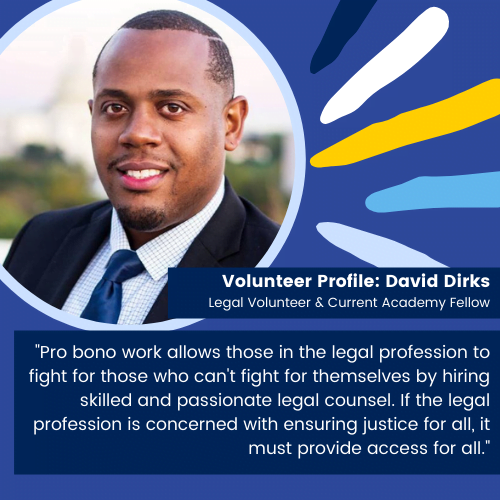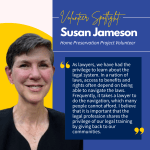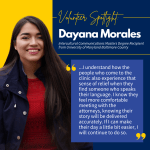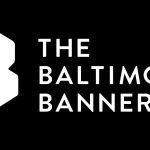Volunteer Profile: David Dirks, Esq.
 What brought you to begin and continue to build your legal career in Maryland? Which of PBRC’s projects do you volunteer with, and how did you get involved?
What brought you to begin and continue to build your legal career in Maryland? Which of PBRC’s projects do you volunteer with, and how did you get involved?
After graduating from law school some time ago, I decided to take the Maryland bar exam in February 2020. The COVID-19 pandemic progressed, and we were on lockdown when the results were released – I passed, yet I found myself unsure of how I could transition out of my then-current career into the practice of law. With little to no job opportunities, but a strong desire to practice, I sought to volunteer with PBRC’s Tenant Volunteer Lawyer of the Day (TVLD) Program and the Consumer Protection Project (CPP) clinic.
What is the problem this project addresses, and what do you do as a volunteer to help? Has COVID-19 exacerbated this problem in any way?
The TVLD program provides limited-scope, day-of-court representation to defendants of Baltimore City's rent court. Landlords sue tenants for possession of their property due to non-payment. In my opinion, this project addresses many issues including housing insecurity, homelessness, habitability, and other landlord-tenant disputes. The TVLD program seeks to balance the power dynamic between landlords and tenants by providing free legal representation.
When providing legal representation in court, first, I listen to the client to get a better understanding of their issues and potential defenses, such as the landlord’s failure to follow licensing requirements or any habitability issues. Next, I work with the client to determine their goals for their case. Then, I discuss the matter and negotiate with the landlord. Lastly, I represent the client in front of the presiding judge. I began volunteering while the Governors' order suspending evictions for people impacted by COVID-19 was in effect. For those affected clients, we would serve the landlord with the order and work to connect the client to either a city or federal rental assistance program.
In terms of its impact, COVID-19 has changed how we protect people who are at risk of losing their housing. The moratoriums saved people from contracting COVID-19 by preventing unsheltered homelessness, doubled-up situations, or an influx of people to congregate shelters. However, inefficiencies with rental assistance payment processing created more problems between landlords and tenants. As a result, rental assistance staff is currently on hand in Baltimore City District Court to help tenants apply for rental assistance programs.
What do you find most rewarding about this work?
First and foremost, I am an advocate for marginalized communities. African Americans make up 13% of the general population but more than 40% of the homeless population. 20% of black households, 18% of American Indian or Alaska Native households, and 16% of Hispanic households are extremely low-income renters, compared to only 6% of white non-Hispanic households, which are extremely low-income renters. These racial disparities exist and are present in Baltimore City and other areas across Maryland and result from economic inequality and systemic oppression. As a Black male lawyer, it is my duty and pleasure to assist tenants, most of whom are BIPOC, by providing competent, diligent, and culturally relevant representation. The fact that some tenants can identify with me is a bonus.
What, if anything, did you find surprising about remote volunteering? What has been rewarding? What, if anything, has been frustrating?
Adjusting to remote volunteering has been surprisingly easy. At the CPP clinic Prince George’s County Resolution Docket, most clients can attend the proceeding remotely from their computer, phone, tablet, or other devices. It has made it more accessible for folks who are not able to travel due to a disability or other personal reasons. For that reason, I would say it's a huge success. The resolution docket allows the creditor and debtor (PBRC client) to negotiate a lower amount, payment plan, or agree to dismiss the suit. However, I regret missing the learning opportunity to represent the client in court.
What did you find helpful/interesting about PBRC’s process? Were there difficulties?
PBRC has created a great process for accessing training and signing up for pro bono opportunities. Additionally, the staff attorneys and paralegals are excellent; Melissa, Amber, Ky, and Thomas – you all are great partners in this work. Honestly, I can't think of any difficulties with the process. However, some issues require collaboration between staff and volunteer attorneys. Those moments are great learning opportunities for everyone involved.
How does the project make it easy to volunteer?
There are two steps—first, sign-up for training(s). Second, sign-up to volunteer. The trainings provide much-needed information regarding practicing in District Court. Additionally, an overview of relevant law, defenses, and procedural tips are beneficial. However, you learn the most by volunteering, either remotely or on-site in court.
Tell me about a client you have met while working with PBRC or a pivotal experience you've had volunteering with the projects.
I worked with a client and his family at the CPP clinic. This client, a responsible borrower, was facing many debts he accumulated, but his current health issues prevented him from continuing his excellent payment history. The client was in hospice care with stage 4 cancer. I assisted his daughter and wife with requesting a hardship dismissal from the creditor. Ultimately the creditor agreed to a hardship dismissal without requiring any paperwork. Although the dismissal didn't require much work on my part, listening to the client's family, explaining the process to them, and securing the hardship dismissal was very rewarding.
How has doing pro bono work changed you?
Doing pro bono work has reignited my desire to litigate. Building my confidence in the courtroom is a significant benefit. Each judge in District Court operates their courtroom differently. Learning to navigate the courtroom, address the judge, approach the clerk, and represent your client succinctly and competently is an invaluable experience.
How important do you think pro bono work is to the legal profession?
It's paramount to ensure that we provide representation and services to communities that cannot afford them. Pro bono work allows those in the legal profession to fight for those who can not fight for themselves by providing access to skilled, passionate, and competent legal counsel. If the legal profession is concerned with ensuring justice for all, it must provide access for all.
What message would you give to attorneys thinking about volunteering?
I want to speak to new(er) attorneys or those who have not practiced for some time. You can and should volunteer. Your service is needed and welcome. By volunteering, you open yourself up to a new area of law, and you will learn local, city, state, and federal laws that may apply to your client’s case. By volunteering, you help yourself, and most importantly, you are helping others.
For more information about volunteering in Maryland, please contact: education@probonomd.org







